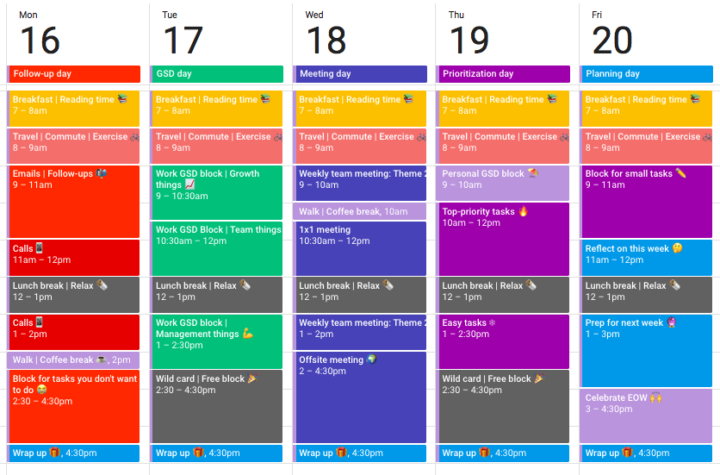Activity
Mon
Wed
Fri
Sun
Jan
Feb
Mar
Apr
May
Jun
Jul
Aug
Sep
Oct
Nov
Dec
What is this?
Less
More
Memberships
The Studycoach School
10.2k members • Free
Successful Students
8.7k members • Free
44 contributions to The Studycoach School
should you watch lectures at 2x speed? here’s what the research says
We've all done it. A 60-minute lecture? Turn it into 30.Boom. Efficiency. But… is faster always better? A study from UCLA tested students watching videos at different speeds (normal, 1.5x, 2x, 2.5x).Here’s what they found: - 1.5x and 2x speed had no negative effect on learning — as long as students paid attention. - 2.5x speed? That’s where comprehension started to drop. - Watching at 2x speed actually helped some students stay focused and reduced mind-wandering. But here’s the key: Speed-watching only works if your brain is fully engaged.If you’re half-distracted or multitasking, you’ll miss the point — fast. Try this: - Watch at 1.5–2x during your first pass - Then review key parts slower (0.75x–1x) for deeper understanding - Use active recall to make the knowledge stick 🎥 I broke this down step-by-step in a short YouTube video: Let me know in the comments: Do you watch lectures at double speed? Or do you need things slow and steady?👇
1 like • Aug 16
It really depends on the content and my familiarity with the topic. For lectures that I'm well-versed in, I often prefer to watch at double speed to save time and keep my focus sharp. However, for complex or unfamiliar subjects, I find it more effective to watch at a slower pace to fully absorb the information.
The Career Advice I Wish I Had Earlier 💼
Your late 20s and 30s are when you build the foundation for your entire future... But most of us waste these crucial years without realizing it. After working with hundreds of working professionals, I've identified 6 critical pieces of advice that transform careers. And the most important one is NOT one that you’d expect. Comment "ADVICE" below to see the most honest career guidance I've ever shared 👇
Here are the 5 science-backed ways to improve focus and concentration
1. Make a Prioritized Task List 📝 - Write down 2–3 important tasks each day. This not only reduces stress but keeps your attention focused on what truly matters—prioritization equals clarity. 2. Take Breaks in Natural Light 🍃 - Step outside or position yourself near a window with natural daylight. Spending just 10–15 minutes in daylight can boost alertness, mood, and cognitive energy. 3. Listen to Focus Music or Natural Sounds 🎧🪈 - Play gentle background sounds—like lo-fi beats or nature sounds. These can enhance focus without overwhelming your brain. 4. Use Visualization Before Tasks 😊 - Mentally rehearse or visualize your actions prior to starting. This activates brain regions responsible for motor planning, improving performance and readiness. 5. Reduce Multitasking 📚 - Avoid juggling multiple tasks at once. Multitasking can reduce productivity by up to 40% and undermine focus. Stick to one task at a time for better efficiency. 📖Summary Tip # Action Why It Works 1 Prioritize tasks Keeps attention focused and reduces overwhelm 2 Natural light breaks Enhances mood and mental energy 3 Focus-friendly sounds Supports concentration without overstimulation 4 Visualize upcoming tasks Prepares the brain, improving execution 5 Avoid multitasking Boosts productivity and maintains sharper focus By incorporating even a couple of these into your routine—like stepping outside for a daily light break or visualizing before starting your work—you can noticeably sharpen your focus over time. I hope this you receive a beneficial tip🙏
1
0
why time blocking will change the way you study
Most students try to “wing it” when it comes to their day. They start with a vague idea like "I’ll study at some point this afternoon"… and then wonder why nothing gets done. The problem? If you don’t tell your time where to go, it will disappear. Time blocking fixes this Instead of having a never-ending to-do list, you assign each task a specific time slot in your calendar. You’re not just deciding what to do, you’re deciding when to do it. why it works: - Removes decision fatigue – you don’t waste energy deciding “what’s next.” - Protects focus – if your calendar says “2–3 pm: physics problem set,” you’re far less likely to drift into TikTok. - Builds momentum – each completed block is a mini win. - Shows your reality – you’ll see if your workload actually fits your day, instead of overpromising yourself. how to start: 1. Write your to-do list for the day or week. 2. Estimate how long each task will take (be realistic — double it if unsure). 3. Assign each task a time slot in your calendar. 4. Treat it like an appointment — if you wouldn’t skip a meeting with your professor, don’t skip your block. 5. Review and adjust at the end of the day. bonus tip: include breaks and buffer time between blocks. Your brain needs recovery to keep performing. 💬 Have you tried time blocking before? If yes, what’s the hardest part — sticking to the plan, or making the plan in the first place?

procrastination or poor time management? here's how to fix both at once
Most votes yesterday where on procrastination and time management. - procrastination (you know what to do but keep avoiding it), or - time management (you want to do it but your day disappears). But the truth is: these two problems feed each other. And the fix? Start small. Start visible. Here’s a 3-step system that works: 🧠 1. Plan backwardsInstead of writing “study biology” on your to-do list, ask:“What do I need to finish by next week, and what’s the first small step I can take today?”Break it down to something that takes <30 mins. 🗓 2. Time block your dayGive every task a home. Open your calendar and literally schedule when you’ll do your small task.Even if it’s just 20 minutes at 4:30 PM. This creates commitment. ✅ 3. Create a "minimum checklist"Write down 3 things you’ll do no matter what, even on a bad day.That could be: - Open your notes - Read 1 page - Write 1 sentence of your essay It’s not about doing everything. It’s about doing something. Daily. 💬 What’s 1 small task you could time block today to beat procrastination?
1-10 of 44
@ragshana-devi-3195
People break you in ways you had never imagined then Krishna fixes you in ways you can't ever imagine
Active 106d ago
Joined Dec 11, 2024
Powered by


